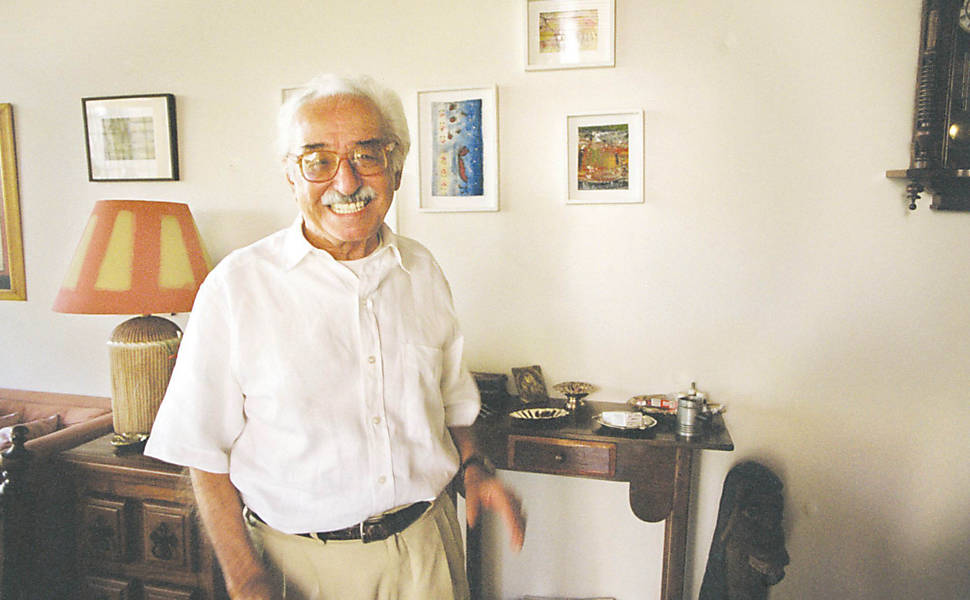Latest Photo Galleries
Brazilian Markets
17h36 Bovespa |
-0,07% | 124.646 |
16h43 Gold |
0,00% | 117 |
17h00 Dollar |
+0,29% | 5,1640 |
16h30 Euro |
+0,49% | 2,65250 |
ADVERTISING
Brazilian Poet Manoel de Barros Dies Aged 97
11/14/2014 - 08h56
Advertising
FROM SÃO PAULO
CONTRIBUTION FOR FOLHA FROM CAMPO GRANDE
The author who wrote verses from the "depths of the trifling", as it features in a poem and one of his books, poet Manoel de Barros died on Thursday morning, November 13th, aged 97, in Campo Grande, in the state of Mato Grosso do Sul.
He had been in intensive care for over a week after he undergone surgery for bowel obstruction. According to the hospital he died due to multiple organ failure.
Manoel de Barros was born in Cuiabá and throughout his life he wrote 18 poetry books, in addition to children's books and autobiographical accounts.
He received a number of literary prizes, two of which were Jabuti prizes (Tortoise prizes) - one in 1989 for "O Guardador de Águas" and in 2002 for "O Fazedor do Amanhecer".
Barros used to say that "poetry is not supposed to be understood, it is supposed to be incorporated. Understanding it creates a wall. One ought to try to be a tree."
"Manoel de Barros was a philosopher who liked to think and rethink the world through poetry", Mozambique born writer Mia Couto, has said.
Eucanaã Ferraz has said that Barros "was wise and surfaced already as an essential author".
Almost half a century went by until his debut in literature: "Poemas Concebidos Sem Pecado" was published in 1937 almost in handmade style, with 21 copies.
The greatest publishing of his works only came in the second half of the 1980s, thanks to the efforts of admirers such as Brazilian writers Millôr Fernanddes and Antonio Houaiss, for whom he was often compared to Saint Francis of Assissi "in his humility before everything".
Even after his tardy success as one of the greatest Brazilian writers of his generation, he stayed true to his origins. He lived in Corumbá in the state of Mato Grosso do Sul, with stints in Rio de Janeiro and New York.
Since the end of the 1970s he lived in Campo Grande with his wife, Stella and their daughter, Martha.
Translated by CRISTIANE COSTA LIMA




